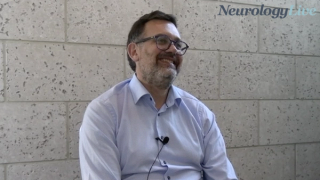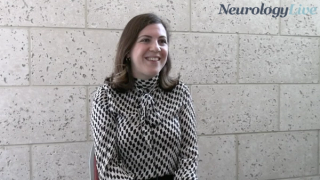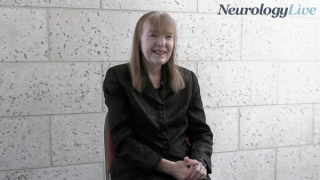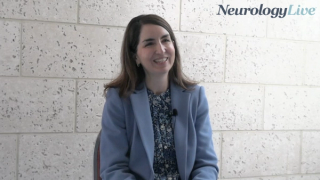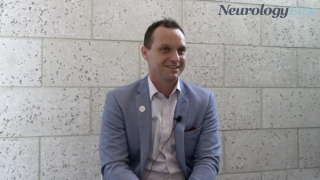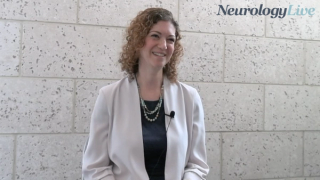
Multiple Sclerosis
Latest News

Latest Videos
CME Content
More News

Panelists discuss how progression independent of relapse activity (PIRA) in multiple sclerosis (MS) represents continuous neurological decline unrelated to inflammatory events, distinct from relapse-associated worsening (RAW). Recent ECTRIMS 2024 presentations emphasized standardized evaluation methods to better understand disease progression and improve patient management strategies.

Panelists discuss how modern multiple sclerosis (MS) management has evolved from symptomatic treatment to a proactive, personalized approach leveraging advanced biomarkers and sophisticated disease-modifying therapies. The focus has shifted toward early intervention, precise monitoring, and comprehensive disease control, significantly improving patient outcomes and quality of life.
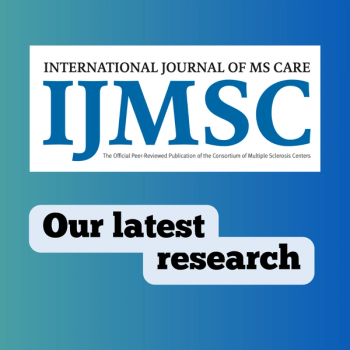
Here's the latest multidisciplinary multiple sclerosis (MS) research from the International Journal of MS Care.

Here's the latest multidisciplinary multiple sclerosis (MS) research from the International Journal of MS Care.

Here's the latest multidisciplinary multiple sclerosis (MS) research from the International Journal of MS Care.

The William S. and Lois Stiles Edgerly Professor of Neurology at Yale School of Medicine talked about the ongoing evolution of multiple sclerosis diagnostic criteria and the importance of comprehensive testing to guide early intervention and improve outcomes. [WATCH TIME: 5 minutes]

The William S. and Lois Stiles Edgerly Professor of Neurology at Yale School of Medicine discussed the newly updated multiple sclerosis criteria, highlighting their focus on probabilistic assessment, advanced technology integration, and early intervention to improve patient care.

Here's the latest multidisciplinary multiple sclerosis (MS) research from the International Journal of MS Care.

David Chernoff, MD, chief medical officer at SetPoint Medical, provided clinical insight on a new pilot study intended to assess the therapeutic potential of a rechargeable neurostimulation aimed to reducing demyelination in relapsing multiple sclerosis.

Nina Miolane, PhD, and Amy Kuceyeski, PhD, the codirectors of the Ann S. Bowers Women's Brain Health Initiative AI Core, provided their commentary on the challenges and progress made in women’s neurology.

A clinician’s guide to using a personalized medicine approach to monitor cognition in MS.

Multiple sclerosis affects nearly 3 million patients worldwide; new research is helping pave the way for developing new therapies and medications that get at the defining mechanisms that trigger immune regulation loss of this unpredictable central nervous system disease.

The chief medical officer at Immunic provided clinical insight on the dual mechanism of action of vidofludimus calcium, and how its positioned as a treatment option across all MS subtypes. [WATCH TIME: 3 minutes]

An IDMC review of unblinded interim data was positive and advised that the trials continue as planned, with time to first relapse up to 72 weeks as the primary end point.

The 2024 revisions to the McDonald diagnostic criteria for multiple sclerosis (MS) mark a significant advancement in the early detection and diagnosis of the disease, with new biomarkers and a broadened scope that may lead to earlier intervention and improved patient outcomes.

Sarah Anderson, PharmD, NBC-HWC, senior director of clinical resources and programming at National MS Society, talked about the significant updates under the Inflation Reduction Act to come in 2025 for patients with multiple sclerosis.

The senior director of clinical resources and programming at National MS Society discussed the significant updates to Medicare Part D in 2025 that will cap annual out-of-pocket costs and introduce a flexible payment plan option for enrollees. [WATCH TIME: 9 minutes]

The postdoctoral research assistant at Charité University Berlin discussed how the new diagnostic criteria for multiple sclerosis could offer earlier detection, especially in those with overlapping autoimmune conditions, through advanced imaging markers.

The chair of neurology at Hospital Universitari Vall d’Hebron talked about the revision of the MS diagnostic criteria that will integrate new evidence, biological markers, and advanced MRI findings to enable earlier and more precise diagnoses. [WATCH TIME: 4 minutes]

The assistant professor at the University of Naples discussed how implementation of new diagnostic criteria for multiple sclerosis will involve practical adjustments in imaging and diagnostic techniques as well as cultural changes in clinical practice. [WATCH TIME: 4 minutes]

Mind Moments®, a podcast from NeurologyLive®, brings you an exclusive interview with Daniel Ontaneda, MD, PhD. [LISTEN TIME: 27 minutes]

The neurologist at the University Hospital Center of Nice discussed whether radiologically isolated syndrome represents a pre-symptomatic phase of multiple sclerosis based on a hot topic session held at the 2024 ECTRIMS Congress. [WATCH TIME: 4 minutes]

A duo of experts talked about a positive phase 2 trial of vidofludimus calcium, demonstrating reductions in serum neurofilament light levels and potentially slowing brain atrophy in patients with progressive multiple sclerosis. [WATCH TIME: 4 minutes]

The consultant neurologist at Queen's Square MS Center in London gave his clinical viewpoint on the newest revision of the McDonald criteria for diagnosing patients with multiple sclerosis. [WATCH TIME: 3 minutes]

The postdoctoral researcher at Amsterdam University Medical Center talked about the DAAE score 2.0 which offers an improved, validated clinical tool to predict the risk of transitioning to secondary progressive multiple sclerosis. [WATCH TIME: 5 minutes]






